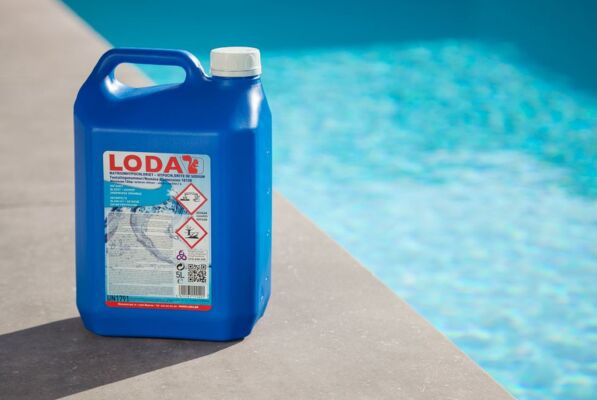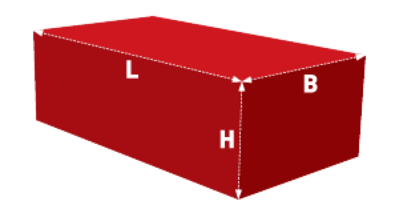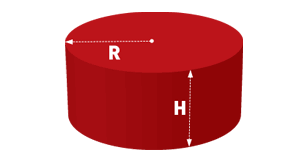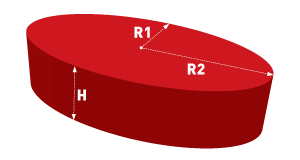Swimming pool
Maintain your pool with LODA
To keep your pool clean and healthy, you should check your pool water regularly. One of the important parameters to check is the chlorine content of your pool water.
The chlorine in your pool water - also called 'free chlorine' - is disinfecting and protects your pool water against bacteria and viruses. Therefore it is important to maintain the right chlorine level in your pool water. And for that LODA liquid chlorine is the ideal product.

How much chlorine do I need?
Calculate the volume of your pool and the amount of chlorine you need below.
What is the importance of (free) chlorine in a swimming pool?
Free chlorine (also called "active chlorine") is chlorine that "works" and thereby disinfects water. You can create free chlorine in your pool by adding liquid chlorine, chlorine tablets or chlorine granules to your pool water. The free chlorine, in combination with a good pH-value (between 7.0 and 7.6), makes your pool water clear and disinfected. The presence of chlorine in your pool is therefore necessary to have healthy and safe water.
What is the ideal concentration of free chlorine in swimming pool water?
The ideal concentration of free chlorine in an outdoor pool is between 0.5 and 3.0 mg free chlorine per litre of water. The ideal concentration of free chlorine in an indoor pool is between 0.5mg and 1.5mg of free chlorine per litre of water. The ideal concentration of free chlorine for spas and whirlpools is between 1.0mg and 3.0mg of liquid chlorine per litre of water.
How can I measure the concentration of free chlorine in my pool?
You can measure the concentration of free chlorine in your pool with a digital meter. Often you can use the same digital meter to measure both the free chlorine concentration and the pH value.
Can I also use chlorine tablets and granules instead of liquid chlorine?
You can perfectly use chlorine tablets or granules for your swimming pool water. However, avoid using chlorine tablets and granules that contain cyanuric acid (mono, di or tri isocyanuric acid). An excess of cyanuric acid will cause the actual concentration of free chlorine to be much lower than the digital meter will indicate. The cyanuric acid content should therefore not exceed 70 mg/l, otherwise your free chlorine will no longer be active enough.
Can I mix liquid chlorine with an acid?
NEVER mix liquid chlorine directly with an acid. This will immediately produce chlorine gas (a green cloud) which is very harmful to your lungs and can be fatal even in high concentrations.
What is the pH value?
The pH value expresses the acidity of water and can assume values between 1 and 14. At a pH value of 7, water is neutral.
What is the ideal pH value for swimming pool water?
The pH-value of swimming pool water must always be between 7.0 and 7.6. The ideal value is 7.2.
What is the danger of a different pH value in a swimming pool?
Meer vragen
Minder vragen
When the pH-value is too high, the chlorine in your pool water becomes less active. This means that the chlorine is less disinfecting, which can lead to the development of dangerous bacteria. Moreover, a too high pH-value in combination with too little (free) chlorine leads to algae growth (green water). A too low pH-value can lead to the corrosion of metal parts (ladders, heat pumps, circulation pumps, lighting,...) in your pool, as well as to the development of an irritating chlorine smell that can cause eye, nose and skin irritations.




